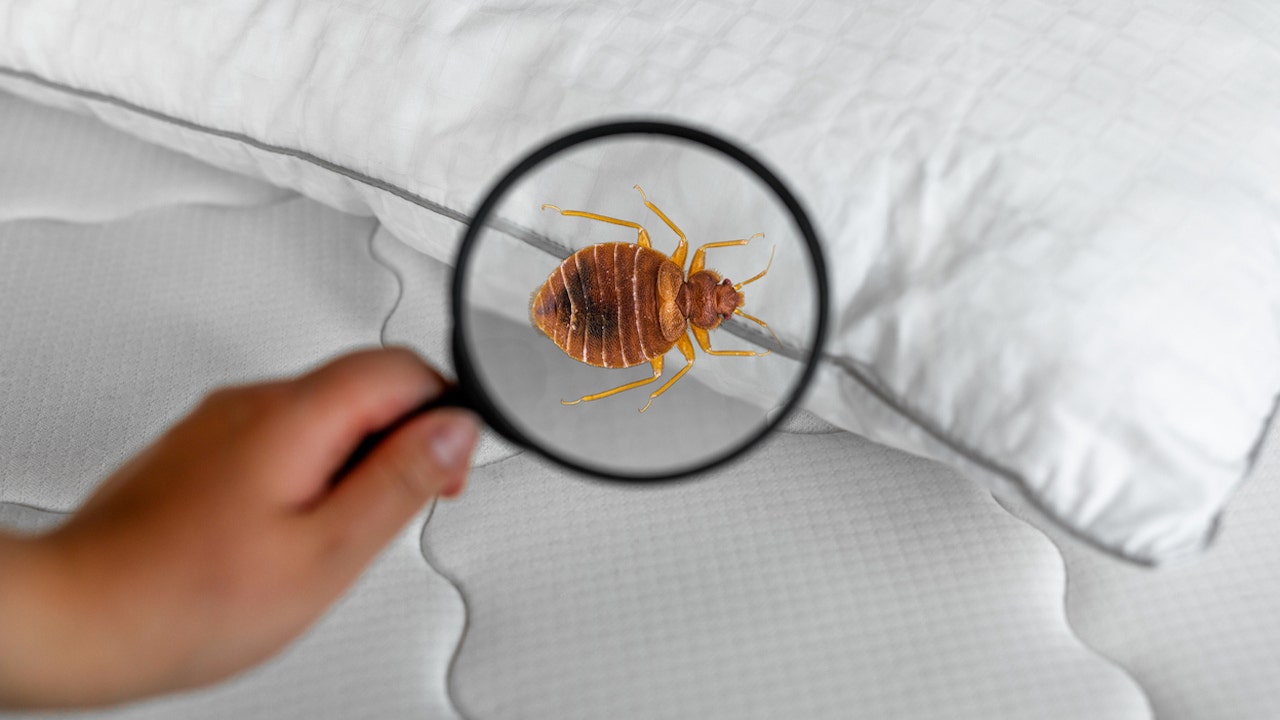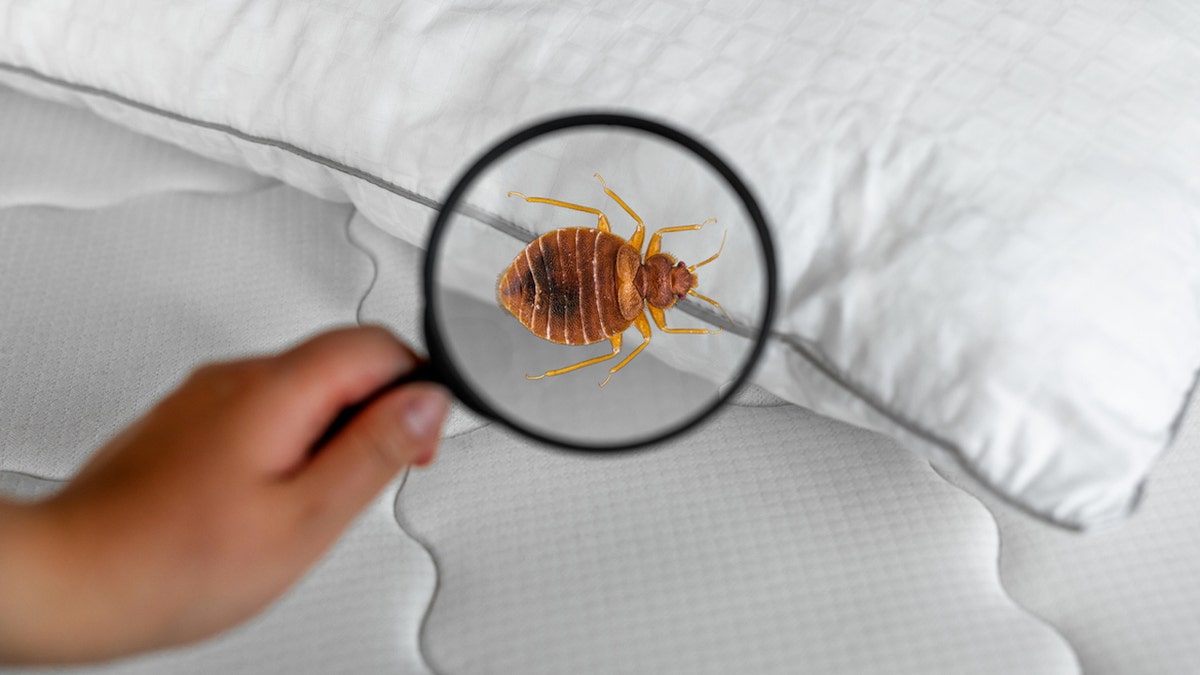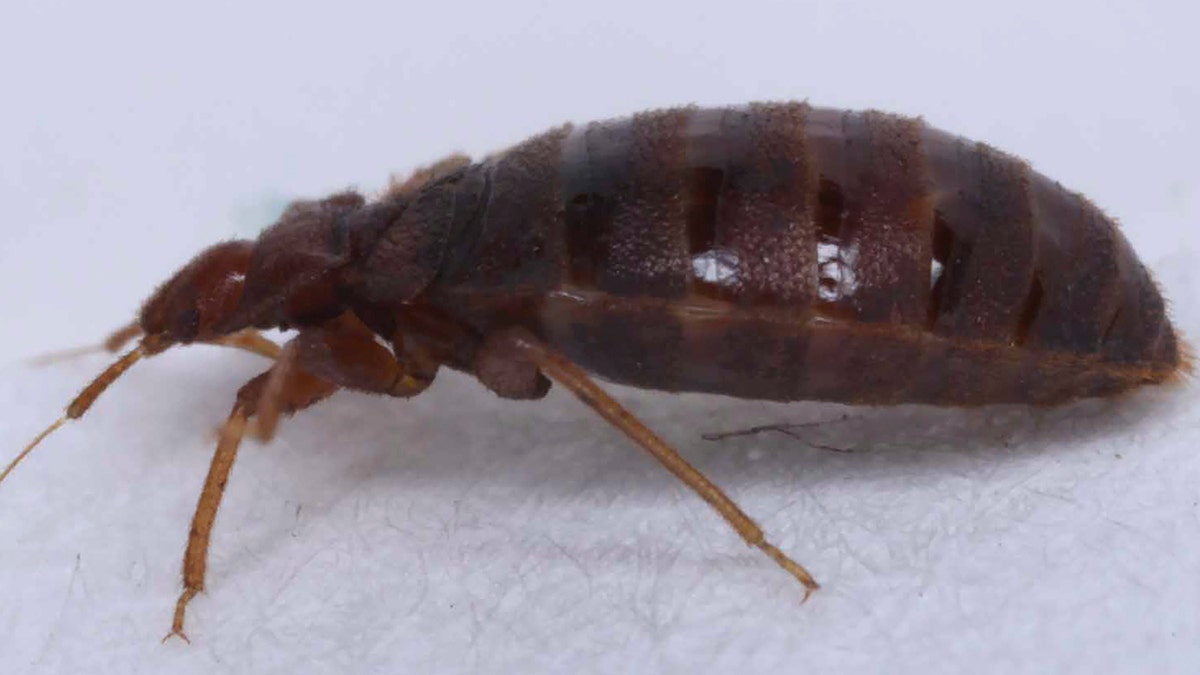
Paris street filled with mattresses amid bedbug outbreak
A street in Paris, France, was filled with mattresses in plastic bags as the bedbug outbreak continues to be an issue in the city. An 18-year-old student was walking home from school when she spotted the beds on the side of the street.
Tenants of the Walnut Court apartments, a large senior living complex in Waterloo, Iowa, have filed a class-action lawsuit against the owners due to what they claim has been a years-long bed bug infestation.
The suit was filed by Theresa Allen, a current tenant, and Gary Montgomery, a former tenant, on behalf of all tenants who have lived on the property since the issue began, as reported by the Iowa Capital Dispatch.
The lawsuit claims that a “raging, unabated bedbug infestation” has been in effect at the 91-unit apartment complex since 2018.
AMID BEDBUG INFESTATION, SHOCKING VIDEO SHOWS A STREET IN PARIS LITTERED WITH OLD MATTRESSES
The defendants named in the lawsuit are 315 Walnut Co-Op and Larson Management, the two companies that own and manage Walnut Court apartments.
The tenants claim that over a five-year period, the owner and manager of the property have not taken proper measures to eliminate the bedbugs, which reportedly have moved to different areas of the complex.

Tenants of a large senior living complex in Iowa (not pictured) have filed a class-action lawsuit against the owners due to what they claim has been a years-long bedbug infestation. (iStock)
They also claim the residents were not informed about the infestation, and that they suffered from bites, rashes and anxiety as a result.
Fox News Digital spoke with an employee of Walnut Court apartments, who directed all questions to the company’s attorney, Henry Bevel with Swisher & Cohrt in Iowa.
BEDBUGS COULD TRANSMIT MRSA BACTERIA THAT CAUSES STAPH INFECTIONS ‘IN SOME SETTINGS,’ STUDY SUGGESTS
When contacted, Bevel told Fox News Digital that the defendants are denying any liability.
He said he could not comment further given the pending litigation.
How bedbugs affect seniors
The task of discovering bedbugs can be harder for seniors, as their skin is actually less sensitive to the bites, according to Robert Edwards, a property manager and pest control expert who specializes in bedbug infestations in Butte, Montana.

Bedbugs often hide in the seams of a mattress or box spring, or in cracks in a headboard or bed frame. (iStock)
“In general, about 40% of the population has no reaction to bedbug bites,” Edwards told Fox News Digital. “As we age, that number gets up to around 80%.”
Bedbug bite reaction is usually the first step in identifying the presence of the bugs — so with seniors, the problem is more likely to be an infestation by the time it’s discovered.
For those who do have reactions, the itchy bites can lead to scratching, which could cause other medical problems for seniors.
AFTER BEDBUG INVASION AT HAWAII AIRPORT, WHAT TO KNOW AND HOW TO RECOGNIZE THE NASTY PESTS
Older adults tend to have more fragile skin, which means persistent scratching could lead to irritation or infection over time, according to the Crossroads Hospice & Palliative Care website.
“Another reason seniors are more vulnerable to bedbugs is that as we age, our vision, mobility and strength generally decrease,” Edwards said. “This makes it more difficult for seniors to inspect hard-to-reach areas for bedbugs.”
It’s harder for a senior person, for example, to crawl across the floor to look under a nightstand or flip over a mattress for inspection, for example.

For those who do have reactions, the itchy bites can lead to scratching, which could cause other medical problems for seniors. (iStock)
“Declining vision also makes inspections harder, since a bedbug is about the size of an apple seed and its eggs the size of a grain of sand,” Edwards noted.
Additionally, those living in senior housing are more likely to be exposed to bedbugs, because they are in higher density quarters with a lot of shared common areas, he said.
“Plus, there are a lot of people coming in and out, including friends, family, maintenance and medical staff,” added Edwards.
IS IT JUST A MOSQUITO BITE — OR COULD IT BE ‘SKEETER SYNDROME’? HERE’S WHAT TO KNOW
Ben McAvoy at Insectek Pest Solutions in Phoenix, Arizona, agreed that elderly adults can be more vulnerable to bedbugs because of their sedentary lifestyle and their difficulty in noticing infestations when they occur.
“Caretakers and loved ones should pay special attention to signs of bedbug activity by inspecting mattress seams, bedding and bedroom furniture regularly,” McAvoy told Fox News Digital.

Bedbugs are small, flat, oval-shaped insects that are reddish brown and do not have wings. They feed on the blood of humans and animals, usually by biting at night. (Jean-Michel Berenger via AP)
“Routine inspections become even more important if an elderly adult is in an assisted living facility,” he continued.
“The top things to look for are brownish red stains on bedding, the physical bedbugs themselves, and exoskeleton sheddings left behind by the maturing bedbugs.”
Bedbug basics
Bedbugs are small, flat, oval-shaped insects that are reddish-brown and do not have wings, according to WebMD.
They feed on the blood of humans and animals, usually by biting at night.
Bedbug bites typically cause a red, itchy spot on the skin.
Some people with a bedbug allergy may experience severe itching.
BEST CARE FOR BUG BITES: DOCTORS SHARE TREATMENT TIPS FOR MINOR AND SEVERE BITES
The bites are often found in clusters, either in a straight row or zigzag pattern, WebMD states.
It can take up to two weeks for the bite marks to become visible. They are typically found on the back, arms, legs, shoulders and neck.
Bedbugs can easily move from one area of a home or building to another. They are also often transported via luggage, furniture, boxes or bags.

To ensure complete removal, chemical treatments with pesticides are often necessary. Experts recommend hiring a professional exterminator who has treated properties for bedbugs in the past. (iStock)
The bugs often hide in the seams of a mattress or box spring, or in cracks in a headboard or bed frame.
Here are some telltale signs of bedbugs, according to WebMD:
- Actual bedbugs in the bed
- Blood spots on the sheets or mattress
- Tiny, pale yellow eggs or eggshells
- Tiny black dots (bed bug feces)
- White, oval eggs (about as big as an apple seed)
- A sweet, musty odor around the bed
To eliminate bedbugs, experts recommend washing all bedding, clothing and curtains in hot water.
Next, use a stiff brush to scrub the mattress to dislodge any bedbugs or eggs from the seams.
CLICK HERE TO SIGN UP FOR OUR HEALTH NEWSLETTER
Then, vacuum the bed and the area surrounding it every day.
It is also recommended that people use a mattress encasement during this process to prevent bedbugs from escaping or entering, WebMD noted.
CLICK HERE TO GET THE FOX NEWS APP
To ensure complete removal, chemical treatments with pesticides are often necessary. Experts recommend hiring a professional exterminator who has treated locations for bedbugs in the past.
For more Health articles, visit www.foxnews/health.







